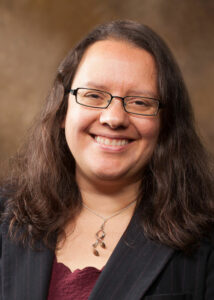With the Paris Agreement pushing for more active changes in the global energy industry, educating and welcoming new talent such as some of the renewable change is becoming just as crucial.
For this reason, the University of Aberdeen has created the Master's Program in Energy Transition, drawing on the experience and reputation of the city as a leading energy hub.
As part of its curriculum, the course, based on the engineering school, will see contributions from other sectors within the university, including geosciences, business and law. It will also build on the foundation of well-established research conducted within the university's existing Center for Energy Transition.
Yoana Cholteeva (YC): Could you tell me a little more about the niche that the new Energy Transition Technologies and Systems course is filling?
Russell McKenna ( RM): The course was created essentially to fill a void. As Aberdeen is a center of competence and a capital for oil and gas, the last few decades have seen an increase in the importance of non-hydrocarbon-based energy.
This has been partly aided by technological development, so we have seen that wind, tidal energy, storage, carbon capture, biofuels, hydrogen, all of these technologies have made significant progress. But there are still challenges – technological, business and political challenges for businesses and governments to achieve the energy transition.
For this reason, we wanted to establish a program that would provide education in the context of a one-year master's course for engineers. It's really STEM focused, it's science, technology, engineering, and math that we're looking at. In this way, students are trained to face these challenges in their future careers and make a contribution to the energy transition .
YC: Aberdeen has been building a reputation for itself as an international energy hub. Is the new course expected to attract and retain more talent from the industry?
RM: Well, there are two things we hope for with this new program. One is that since Aberdeen is already well established as the oil and gas capital of the UK, if not Europe, there is already a lot of experience and infrastructure in the oil and gas context as the sector itself grapples to your own energy. transition.
That could mean reducing emissions during long-term operation. What we do regarding decommissioning is important too, but essentially all of these skills and experience are highly transferable between the oil and gas and renewables sector and the energy transition.
Another thing we hope with this new program is that we will see interest from the oil and gas sector. From employees to oil and gas engineers looking to improve their skills or change direction to pursue renewable energy.
<! –
Latest report from
Visit GlobalData store
->
At the same time we hope to recruit new students in Aberdeen, who are excited about this program, but also the context in which a lot is happening in the area, hydrogen, offshore, wind, and carbon capture and storage … So it's both the existing experience as the new experience what we are trying to attract to Aberdeen.

YC: Could you tell me a bit more about the "systems thinking" approach to the energy transition that the course is taking?
RM : From the beginning when we designed this program, we intentionally focused on the system level, so it is not just about individual technologies like wind turbines or storage.
It's about getting the perspective of this system and understanding how all these technologies fit into the larger energy landscape. An example that I like to use in my teaching is looking at a building and in this part of the world, particularly in winter, you have higher energy needs for heating and water.
So when you are thinking about making your building more sustainable, you can insulate the roof or replace the windows to make the building more efficient. It also reduces the demand for heating. So this measure itself, isolation technology, competes or interacts with what we call supply-side technology; In this context, you are providing heat in a more efficient way with a heat pump, for example, or thermal panels on the roof.
And what we are trying to educate or communicate in this program is that system thinking is to take into account this competition between the construction of demand and supply, and an understanding of how individual measures or technologies have an impact at the systems level.
YC: What do you think remains to be done to combat the existing decarbonization challenges and "rebuild more environmentally" after the Covid-19 pandemic?
RM: A lot is happening in terms of progress towards the energy transition, but what is happening is not fast enough. We've seen a lot of development in renewables, but in energy, when it comes to buildings or products, progress has been slow in the UK and Europe.
To some extent, I think the Covid-19 pandemic could be a blessing in disguise when it comes to moving in this direction, because it has drastically changed everyone's lifestyle. Maybe in the long run we will have a nice knock-on effect in terms of how people work and enjoy their time. But this could also have a positive impact on energy systems.
Many experts expect this to mean less commuting or shorter commute distances, more work from home, which means less commuting. It also means that large organizations, especially office-based organizations, will not need to have such large facilities and will not need to heat them. So there are potentially a lot of savings to watch.
YC: How do you think the new course will influence the new generation of engineers?
RM: I think hopefully it is an interesting subject to study because it is at the forefront of what is happening in the world. We also have a lot of participation in the industry program, with guest lectures and internship opportunities.
It is a vibrant opportunity for students, but in the long term it provides excellent career opportunities, because it is about the future until 2050 and beyond. This is where the growing markets lie in terms of being employed as an engineer with the system thinking skill set.
And another thing that I think is key, especially when we talk about systems thinking, we are talking about large teams of different experts, teams of engineers who are experts in different areas. Diversity is key among those teams.
And hopefully this is one way that the program can influence the future generation of engineers, as we reflect the diversity of students who go through the program and are enter the business world.
<! –










Be First to Comment